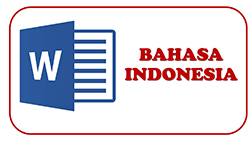Efektifitas Permainan Tradisional Engklek terhadap Penguasaan Konsep Pembelajaran Tematik Peserta Didik Kelas III Madrasah Ibtidaiyah
Abstract
The application of the traditional engklek game as a learning method by inviting students to play is one of the variations of learning that is favored by children and is able to train students in mastering the thematic learning concepts. This research is important to be researched in order to provide solutions to the low mastery of thematic learning concepts in Madrasah Ibtidaiyah which is still happening so that learning objectives can be implemented properly. The method in this study uses quantitative to test students after being given treatment in the form of applying the traditional engklek game. The research instrument used an observation and test form. The data analysis technique in this study is looking for validity, reliability, normality and linearity tests, and hypothesis testing with a t-test. The results obtained in the research conducted in class III in MI in Maduran District, Lamongan Regency, it can be concluded that 1) the level of interest in the engklek game 74% are included in the good category, meaning that the traditional engklek game can be said to be feasible as one of the suitable learning media to be applied to students of Madrasah Ibtidaiyah. 2) The level of mastery of students' concepts is 79% included in the high category, meaning that students' mastery of concepts in learning has been able to master thematic learning concepts in class III. 3) The effectiveness of the engklek game on students' concept mastery based on hypothesis testing is obtained tcount > ttable (4.163 > 2.101), meaning that the use of the engklek game is a new and varied method to be used in thematic learning.
Downloads
References
Afandi, Muhammad dkk. (2013). Model dan Metode Pembelajaran di Sekolah. Semarang: Unissula Press.
Agung, A. A. G., & Prawini, I. G. A. P. (2017). Pengembangan Aktivitas Pembelajaran Mengomunikasikan Berbasis Permainan Tradisional Terhadap Peningkatan Hasil Belajar Siswa. International Journal of Elementary Education, 1(3), 180–188. https://doi.org/10.23887/ijee.v1i3.10324
Akbari, H., Behros, A., Mohsen, S., Hasan. K., Samaneh, H., & Vahid, Z. (2009). The effect of traditional games in fundamental motor skill development in 7-9 year old boys. Iranian Journal of Pediatrics, 19, (2), 123-12.
Amania, Mia dkk. (2021). Pengembangan Modul Permainan Tradisional Sebagai Upaya Mengembangkan Karakter Adil Pada Anak Usia 9-12 Tahun. Elementary School: Jurnal Pendidikan dan Pembelajaran ke-SD-an, 8 (2), 237 – 251. https://doi.org/10.31316/esjurnal.v8i2.1230
Astuti, Lin Suciani. (2017). Penguasaan Konsep IPA Ditinjau dari Konsep Diri dan Minat Belajar Siswa. Formatif, 7 (1), 40-48. http://dx.doi.org/10.30998/formatif.v7i1.1293
Badu, R. W. (2011). Pengembangan Model Pelatihan Permainan Tradisional Edukatif Berbasis Potensi Lokal Dalam Meningkatkan Pengetahuan Dan Keterampilan Orang Tua Anak Usia Dini. Jurnal Ilmiah Visi, 6(2), 180 - 188. https://doi.org/10.21009/JIV.0602.8
Buldur, A., & Omeroglu, E. (2018). An Examination of the Relationship between Preschool Children’s and Their Teachers’ Attitudes and Awareness towards the Environment. Journal of Education and Learning, 7(2), 221. https://doi.org/10.5539/jel.v7n2p221
Darmaji, D., Kurniawan, DA, & Irdianti, I. (2019). keterampilan proses sains siswa pendidikan fisika. Jurnal Internasional Evaluasi dan Penelitian dalam Pendidikan, 8(2), 293–298. https://doi.org/10.11591/ijere.v8i2.28646
Fatmawati, Endang. dkk. (2022). Pembelajaran Tematik. Aceh: Yayasan Penerbit Muhammad Zaini.
Hughes, F.P. (2010). Children, play, and development, (4th edition). USA: Sage Publications.
Kamid, K., Sofnidar, S., Septi, S.E., & Citra, Y.D. (2021). The Contribution of the Traditional Game of Congklak to Mathematics Learning: How is The Relationship and Influence Of Interest, Cooperative Character And Student Responses. Premiere Educandum : Jurnal Pendidikan Dasar dan Pembelajaran, 11(2), 280 – 295. https://doi.org/10.25273/pe.v11i2.9995
Kurniati. (2006). Permainan tradisional di Indonesia. Bandung: Remaja Rosdakarya
Nataliya, P. (2016). Efektivitas Penggunaan Media Pembelajaran Permainan Tradisional Congklak Untuk Meningkatkan Kemampuan Berhitung Pada Siswa Sekolah Dasar. Jurnal Ilmiah Psikologi Terapan, 3(2), 343–. https://doi.org/10.22219/jipt.v3i2.3536
Nisa’, Rofiatun. (2022). Pengaruh Kuis Kahoot Terhadap Motivasi Belajar Peserta Didik Kelas IV Madrasah Ibtidaiyah. At-Thullab: Jurnal Pendidikan Guru Madrasah Ibtidaiyah, 6 (1), 16-28. https://doi.org/10.30736/atl.v6i1.681
Nyota, S., & Jacob, M. (2008). Shona traditional children’s games and play: Songs as indigenous ways of knowing. Journal of Pan African Studies, 2, (4)
Simatwa, E. M. W. (2010). Piaget’s theory of intellectual development and its implication for instructional management at the presecondary school level. Academic Journals, 5, (7), pp. 366-371
Sugiyono. (2017). Metode Penelitian Kuantitatif, Kualitatif, dan R&D. Bandung : Alfabeta
Utaminingsih, R., Rahayu, A., & Andini, DW (2018). Pengembangan RPP IPA sekolah dasar berbasis pembelajaran berbasis masalah untuk siswa berkebutuhan khusus Pengembangan RPP IPA SD berbasis pembelajaran berbasis masalah untuk siswa berkebutuhan khusus.Jurnal Inovasi Pendidikan IPA, 4(2), 191–202.
Wahyu, Y., Edu, AL, & Nardi, M. (2020). Problematika Pemanfaatan Media Pembelajaran IPA di Sekolah Dasar. Jurnal Penelitian Pendidikan IPA, 6(1), 107. https://doi.org/10.29303/jppipa.v6i1.344





.png)










